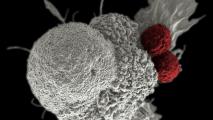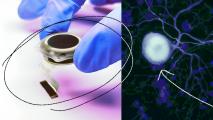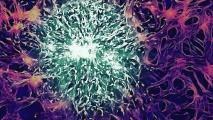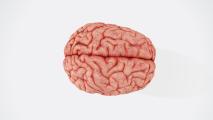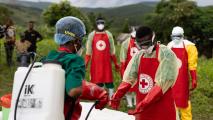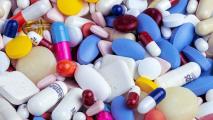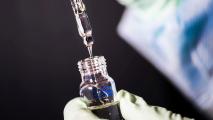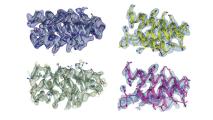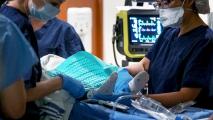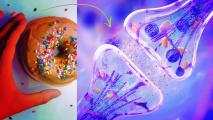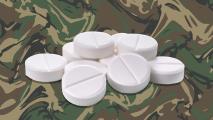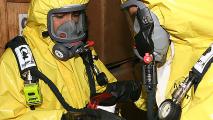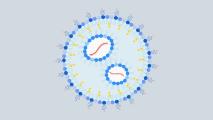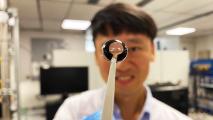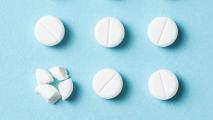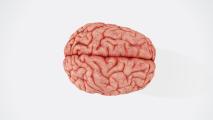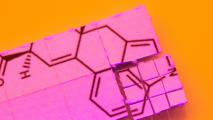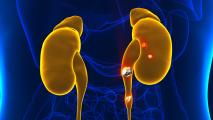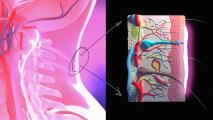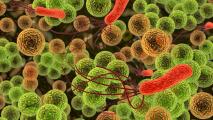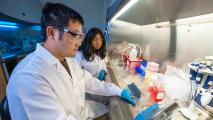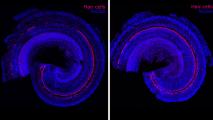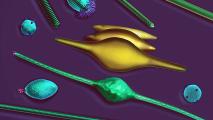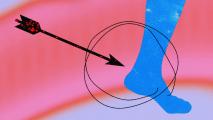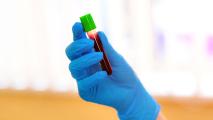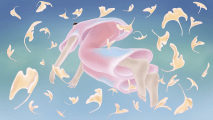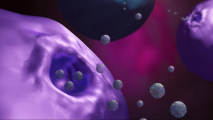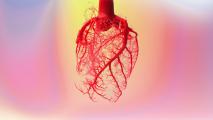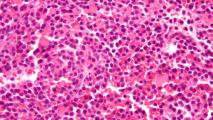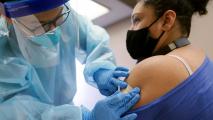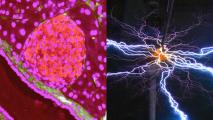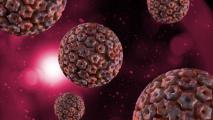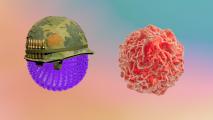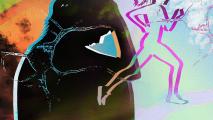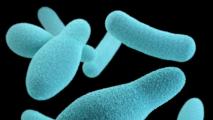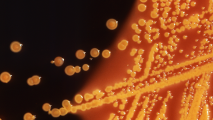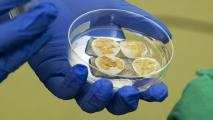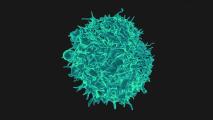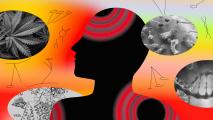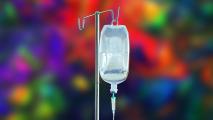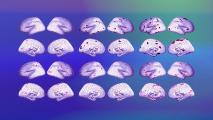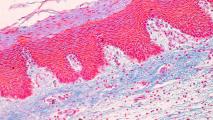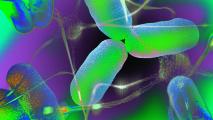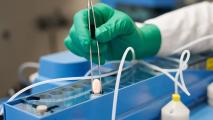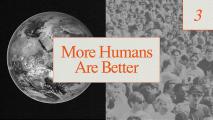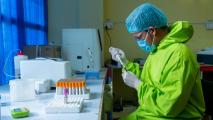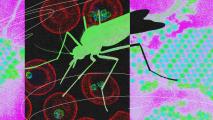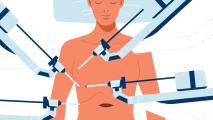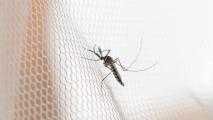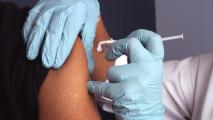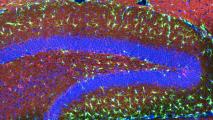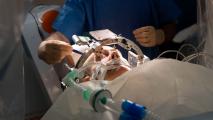Showing 809 results
Nanoparticles are the future of medicine
The success of some drugs that use nanoparticles, such as the COVID-19 mRNA vaccines, has prompted excitement among researchers.
Personalized mRNA vaccine preps the body to battle deadly cancer
A new pancreatic cancer vaccine based on mRNA tech was shown to be safe and capable of triggering an immune response in a small trial.
A common arthritis drug treats alopecia (Updated)
A common arthritis drug may be an effective alopecia treatment, based on a trial in which it helped people regrow their hair in just 36 weeks.
Anti-aging pill for senior dogs is now in clinical trials
An anti-aging pill for senior dogs now in clinical trials might lead to treatments that extend human lives, too.
Elon Musk’s Neuralink has implanted its first device in a human being
Now that Neuralink has implanted a device in a person, CEO Elon Musk is closer to his goal of making brain chips common in the future.
Engineers develop nanoparticles that cross the blood-brain barrier
Tested using a new brain tissue model, the particles may be able to deliver chemotherapy drugs to cancer patients.
The Biden administration is preparing for legal psychedelics within two years
The Biden administration’s Department of Health and Human Services has sent a memo supportive of psychedelic therapies. What does that mean for the field?
Why do women live longer than men?
Women tend to live longer than men around the world – but the gap life expectancy is not a constant. These stats tell the story.
“Jumping genes”: A new model of Alzheimer’s
A new hypothesis suggests that Alzheimer's disease is the result of "jumping genes" in the brain, not inflammation or plaque.
As Ebola reaches Ugandan capital, vaccines race to catch up
Caused by the Sudan strain of Ebola, current vaccines and therapies approved for Ebola won’t work in Uganda. But these might.
Injections of brain protein reverse memory loss in mice
A protein called “KIBRA” could be the key to new Alzheimer’s treatments that don’t just slow disease progression, but reverse memory loss.
90% of drugs fail clinical trials – here’s one way researchers can select better drug candidates
It’s disappointing when the years of effort and resources spent to push a drug candidate to patients so often lead to failure.
San Francisco decriminalizes plant-based psychedelics
San Francisco joins Oakland, Santa Cruz, DC, and Denver in decriminalizing some psychedelics.
The first FDA-approved clinical trial of psilocin has begun
“This has never been done before,” says Filament’s CEO.
Computer-designed miniproteins unleash a whole new kind of drugs
Using a computer program, researchers have created miniproteins that they hope can lead to new drugs.
New brain cancer treatment trialed in children for the first time
MRI-guided focused ultrasound has been used to deliver chemo into the brain of a pediatric cancer patient for the first time.
Serotonin plays a key role in patience and impulse control, research says
Evidence suggests that there is in fact a neurological factor to the brain's ability to control impulses and manage patience.
New drug combo is “a paradigm shift” in preventing asthma attacks
The combination of a rescue medication and a corticosteroid, taken as needed, reduced both short and long-term risk of asthma attacks.
Why is the value of money for happiness increasing?
While the old adage says that money can’t buy happiness, studies have determined that the more your income increases, the happier you are.
Two African countries first to approve Oxford’s malaria vaccine, with 20 million doses on the way
Ghana and Nigeria have become the first two nations to approve Oxford’s vaccine against malaria.
The psychedelic DMT causes the brain to become hyperconnected, scans reveal
Researchers gave 20 healthy subjects potent, intravenous doses of the psychedelic DMT and observed their brains. Here's what they found.
Psychedelic research returns to Veterans Affairs
After decades, the Department of Veterans Affairs is once again investigating psychedelic therapies.
How cancer science is creating a sunscreen that lasts all day
NYU chemists have taken lessons learned from cancer drug development to create a longer-lasting sunscreen ingredient
From drugs to chemical weapons with a flip of an AI switch
AI drug discovery models can be repurposed to darker ends — instead of discovering new treatments, they could create thousands of brand new chemical weapons.
Fiber is your body’s natural guide to weight management
Fiber is important not just for happy bowel movements, but also for your blood sugar, weight, and overall health.
First-of-its-kind pig kidney transplant is a success
A woman with heart and kidney failure is now the second person in the world to undergo a gene-edited pig kidney transplant.
New mRNA therapy could bring an end to peanut allergies
A new peanut allergy treatment based on mRNA could potentially lead to therapies that prevent all types of allergies in people.
New battery charged by tears will power smart contact lenses
An ultra-thin, flexible battery could lead to safe, comfortable smart contact lenses partially powered by our tears.
Cheap blood pressure med could help treat alcoholism
Spironolactone, a cheap medication used to treat high blood pressure, might also be able to help people overcome alcohol use disorder.
Cancer is addicted to iron. It could be a fatal weakness.
By homing in on the high levels of iron in certain cancer cells, researchers have created a more targeted anticancer drug.
Biggest science prize in history aims to extend human healthspan by a decade
Do humans have an ethical obligation to “die young”? Maybe not in the way you think, says bioethicist Raiany Romanni.
Breakthrough drug could save hundreds of thousands of children’s lives
A booster dose of the University of Oxford’s malaria vaccine demonstrated up to 80% efficacy in children over a year of follow-up.
How to use the brain’s own immune cells to stave off Alzheimer’s
Research suggests that microglia play a key role in preventing neurodegenerative diseases by helping to remove toxic waste.
LSD effective as major depression therapy in phase 2 trial
MindMed and University Hospital Basel have announced top line results for their phase 2 trial.
New AI generates CRISPR proteins unlike any seen in nature
An AI that generates CRISPR proteins is opening the door to gene editors with capabilities beyond what we’ve found in nature.
Safer painkillers: A novel drug treats pain without killing people
Painkillers have nasty side effects, such as organ damage or addiction. Researchers have discovered a new drug that may cause none of these.
Engineered bacteria may one day prevent kidney stones
In a small proof-of-concept study, an engineered E. coli was able to reduce levels of a kidney stone-causing chemical.
Drug to treat alcoholism could also safely reduce anxiety
The alcoholism treatment disulfiram may be able to serve double-duty as an anti-anxiety medication, according to mouse studies.
New clinical trial is testing a ketamine skin cream for PTSD
A topical ketamine treatment designed to alleviate the symptoms of PTSD without causing hallucinations has entered clinical trials.
First personalized CRISPR therapy approved for trial
The FDA has approved a trial for the first personalized CRISPR therapy, which was developed to treat Duchenne muscular dystrophy.
Tiny nanoscale drills can bore holes right through bacteria
Rice University researchers have developed tiny, bacteria-boring drills in an effort to stop superbugs.
New CRISPR tool has an “on/off” switch
By splitting a base editor into two parts, researchers could give it an “on/off” switch that appears to make it safer and more effective.
Nonprofit drugmaker Civica Rx is taking aim at the high insulin price
People living with insulin-dependent diabetes have been waiting a long time for it to be more affordable. Could things change?
Reversing hearing loss with regenerative therapy
MIT spinout Frequency Therapeutics’ drug candidate stimulates the growth of hair cells in the inner ear.
A shapeshifting volcano virus’s secret has been discovered
The secret to a shapeshifting volcano virus may help us create new, better drug and vaccine delivery platforms.
Psychedelics open a new window on the mechanisms of perception
Some neuroscientists think psychedelics and the hallucinations they induce could help reveal how we generate our perceptions of the world.
“Stealth bomb” for cancer unlocks powerful immune attack
A "masked" cancer drug stealthily trains immune system to kill tumors while sparing healthy tissues, reducing treatment side effects.
How the “powerhouse of the cell” could be cancer’s Achilles heel
Salk Institute researchers have found that rewiring mitochondria could make cancer cells visible to the immune system.
$3.5 million treatment for hemophilia wins FDA approval
The FDA has approved biotech company CSL Behring's Hemgenix, a hemophilia B treatment that costs $3.5 million per dose.
Psychedelics are helping dying patients overcome their existential distress
End of life patients face existential and spiritual challenges other patients do not. Psychedelics may be uniquely suited to helping them.
Chickenpox and shingles virus lying dormant in your neurons can reactivate and increase your risk of stroke
People with shingles have an approximately 80% higher risk of stroke than those without the disease, and researchers want to know why.
CRISPR eliminated heart damage in mice after a heart attack
A new CRISPR base editing therapy was able to prevent mice from suffering seemingly any heart damage following an induced heart attack.
Arkansas man receives world’s first eye transplant
The world’s first whole eye transplant puts doctors a major step closer to restoring vision with donor eyes in the future.
FDA approves first-of-its-kind blood cancer treatment
The FDA has approved Johnson & Johnson’s Tecvayli, a new blood cancer treatment for people with relapsed or refractory multiple myeloma.
How the antidepressant Prozac could treat blindness
Prozac is a widely used antidepressant. Data indicates that the drug could be used to prevent blindness due to macular degeneration.
New brain implant for depression tested in people for the first time
A tiny brain implant designed for at-home neurostimulation has been demonstrated in people for the first time.
One shot of this COVID-19 drug reduces risk of death by 60%
In-development COVID-19 drug Peginterferon Lambda reduced risk of hospitalization or lengthy emergency room visits by 50% in a phase 3 trial.
Exercise boosts the brain — and mental health
New research is revealing how physical activity can reduce and even ward off depression, anxiety and other psychological ailments.
New study shows how electricity can turn on genes
A prototype wearable demonstrates a novel way to trigger gene expression: by zapping cells with electricity.
Herpes virus helped kill a deadly form of breast cancer in a clinical trial
A combination of an engineered herpes virus and chemo showed promise for treating triple-negative breast cancer in a small study.
Gain-of-function research is more than just tweaking risky viruses
Gain-of-function experiments in the lab can help researchers get ahead of viruses naturally gaining the ability to infect people in the wild.
A modified herpes virus completely wiped out a terminal cancer
In a small phase 1 trial of a herpes-based cancer therapy, one patient had their tumors completely eliminated.
Running or yoga can help beat depression, research shows – even if it’s the last thing you feel like
Exercise can be just as impactful in treating depression as therapy, but it matters what type of exercise you do and how you do it.
Brain stimulation helps people with Parkinson’s walk
A noninvasive form of brain stimulation developed by Japanese researchers improved the symptoms of Parkinsonian gait in a small trial.
Potential way to treat anorexia found in microbiome
New research links the gut microbiome, an ecosystem of viruses, bacteria, and fungi, to the development of anorexia nervosa.
Engineered bacteria may fight this brain-damaging genetic disorder
A possible phenylketonuria therapy using engineered bacteria has shown positive results in a small phase 2 trial.
Baby thrives after first-of-its-kind heart transplant
A baby’s first-of-its-kind heart transplant could help future patients avoid organ rejection and reduce the need for immunosuppressant drugs.
Mark Cuban launches online pharmacy to cut drug prices
Billionaire investor Mark Cuban has launched an online pharmacy designed to cut the cost of generic drugs by as much as 99%.
Series|
Catalysts
This restaurant only hires recovering drug users
In partnership with Stand Together
After addiction killed 13 of their employees, this restaurant devoted itself to helping people in recovery.
The source of a strange anti-cancer compound is found in Florida
Researchers have discovered that common soft corals are the source of a sought-after anti-cancer compound.
The groundbreaking plan to map the entire human immune system
Powered by AI and a vast trove of data, the Human Immunome Project aims to fully map the most complex system in the human body.
Psychedelics, brain implants, and the future of chronic pain relief
The future of chronic pain relief could include psychedelics, gene therapies, brain implants, and other cutting-edge alternatives to opioids.
DMT therapy appears effective for depression in phase 2 clinical trial
London-based Small Pharma has released positive top-line results for their phase 2a trial of DMT as an antidepressant.
Mental illnesses affect brain structure, but in surprisingly different ways
A new brain mapping study identified commonalities in the brains of people with mental illnesses, and it could lead to better treatments.
Too much body fat isn’t the problem — malfunctioning body fat is
When fat cells are overloaded with excess nutrients, they become too big and don't receive enough oxygen, causing them to die.
Drug that cleans up cholesterol may reduce post stroke dementia
Researchers look to an FDA-approved drug ingredient that can "scoop-up" and store cholesterol and possibly stave off post stroke dementia.
New tiny home village for unhoused people to open in 2023
Salt Lake City is building a new tiny home village to help Utahns experiencing chronic homelessness get off the street permanently.
The growing link between microbes, mood, and mental health
New research suggests that to maintain a healthy brain, we should tend our gut microbiome not through pills and supplements, but better food.
The science of habits
Whether you’re trying to break a bad habit or start a good one, psychologists have some tips to get you started.
America’s “Test to Treat” has failed. Here’s how to fix it.
So far, Test to Treat has largely failed to get antivirals for COVID-19 to patients that need them — but the initiative can still be fixed.
How we treat inflammation may be causing chronic pain
Reversing common belief, researchers at McGill say treating inflammation may be causing chronic pain, not preventing it.
The overlooked virtues of a crowded world
In a world of rising cynicism, a celebration of our capacity to create, adapt, and thrive.
Yale study of DMT for depression is encouraging
Yale researchers have conducted a small study finding DMT is safe and tolerable enough for more research.
Scientists discover possible precursor to a Parkinson’s drug
Scientists have optimized a peptide known to prevent the “protein misfolding,” that causes Parkinson’s disease. This could be a precourser to a disease treatment.
The hunger-boredom paradigm explained by scientists
True hunger builds gradually and can be satisfied by any source of food, but emotional eating (including eating out of boredom) is insatiable.
Series|
Challengers
At-home ketamine therapy — are you ready?
Will this at home “tripping kit” change mental health forever?
5 biotech trends to watch in 2023
After a monumental year of breakthroughs, scientists, investors, and CEOs share which areas of biotech they are eagerly watching this year.
World’s first chikungunya vaccine approved in US
The FDA has just approved French biotech company Valneva’s Ixchiq, making it the world’s first chikungunya vaccine.
Pfizer’s nasal spray for migraines is heading to pharmacies
The FDA has approved Pfizer’s zavegepant, a nasal spray for migraines that can ease pain in as few as 15 minutes.
Man receives donor lung through tiny 3-inch incision
The first fully robotic lung transplant was completed in Spain by surgeons using a robot and a brand-new access point.
New children’s malaria treatment clears out infection in liver
Malaria can hide in the liver, causing relapse months or years later. Now, public health officials have a new treatment to prevent relapse for children under 16.
How three kids got kidney transplants without immunosuppressants
Stanford researchers have developed a new technique that allowed three children to receive kidney transplants without immunosuppressants.
AI maps psychedelic “trip” experiences to regions of the brain – opening new route to psychiatric treatments
To better understand how these effects manifest in the brain, we analyzed over 6,000 written testimonials of hallucinogenic experiences.
Scientists uncover key to future hepatitis C vaccine
While treatments are available for HCV-related infections, they are expensive, hard to access, and do not protect against reinfection.
Theory of mind: What chess and drug dealers can teach you about manipulation
Every social interaction is a game of chess, trying to get inside someone’s head to navigate what they are thinking or what they will do.
How a mutation in microglia elevates Alzheimer’s risk
A study finds that microglia with mutant TREM2 protein reduce brain circuit connections, promote inflammation, and contribute to Alzheimer’s.
A malaria-fighting antibody has passed phase 2 trials
An antibody designed to prevent malaria infection has proven effective in phase 2 trials in Mali.
Harm reduction vending machines are coming to New York
New York City has announced a pilot program installing public health vending machines with overdose drugs and clean needles.
New research on deep brain stimulation shows biomarkers could help depression treatment
Deep brain stimulation can alleviate treatment-resistant depression for some patients, and could help doctors measure outcomes.
